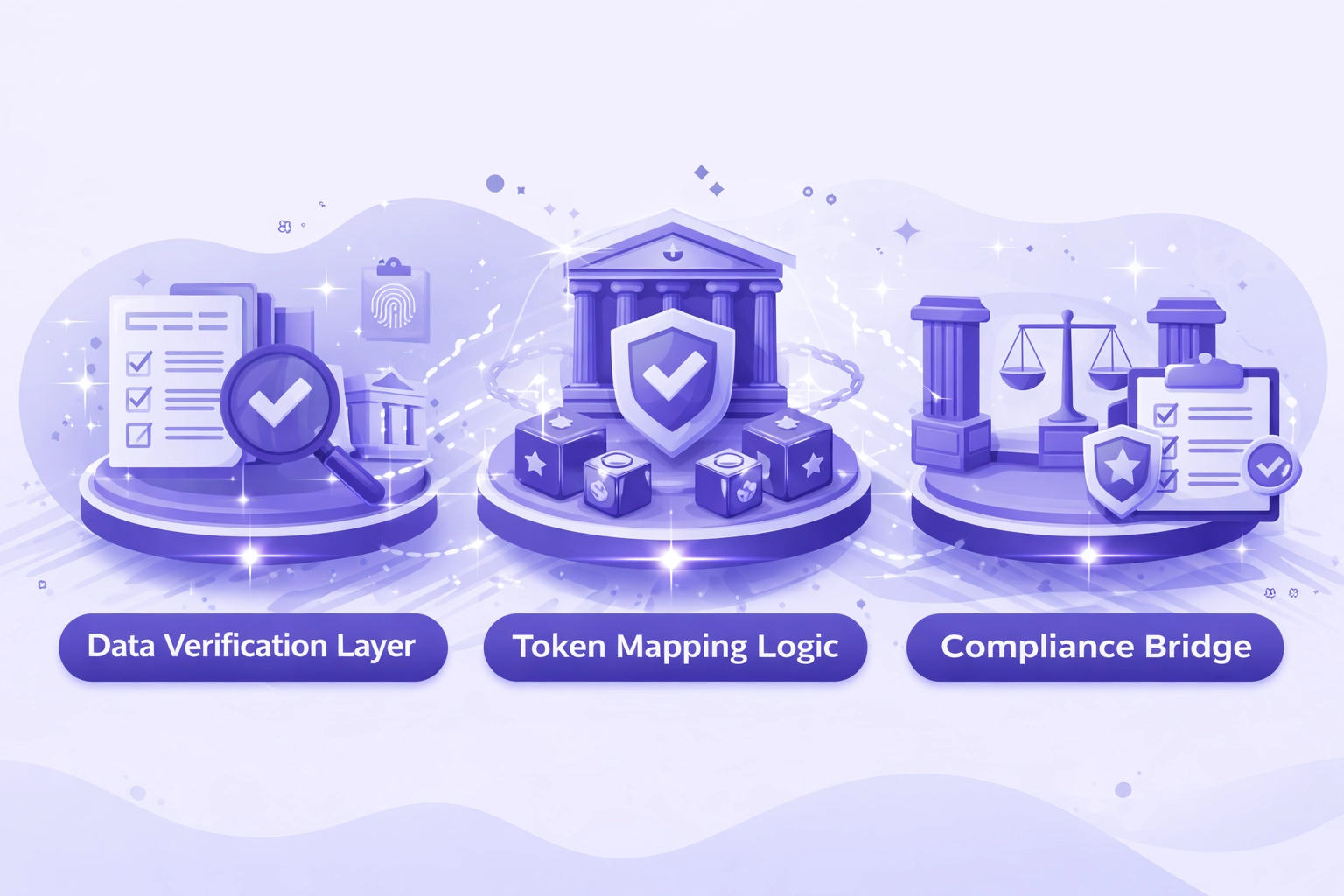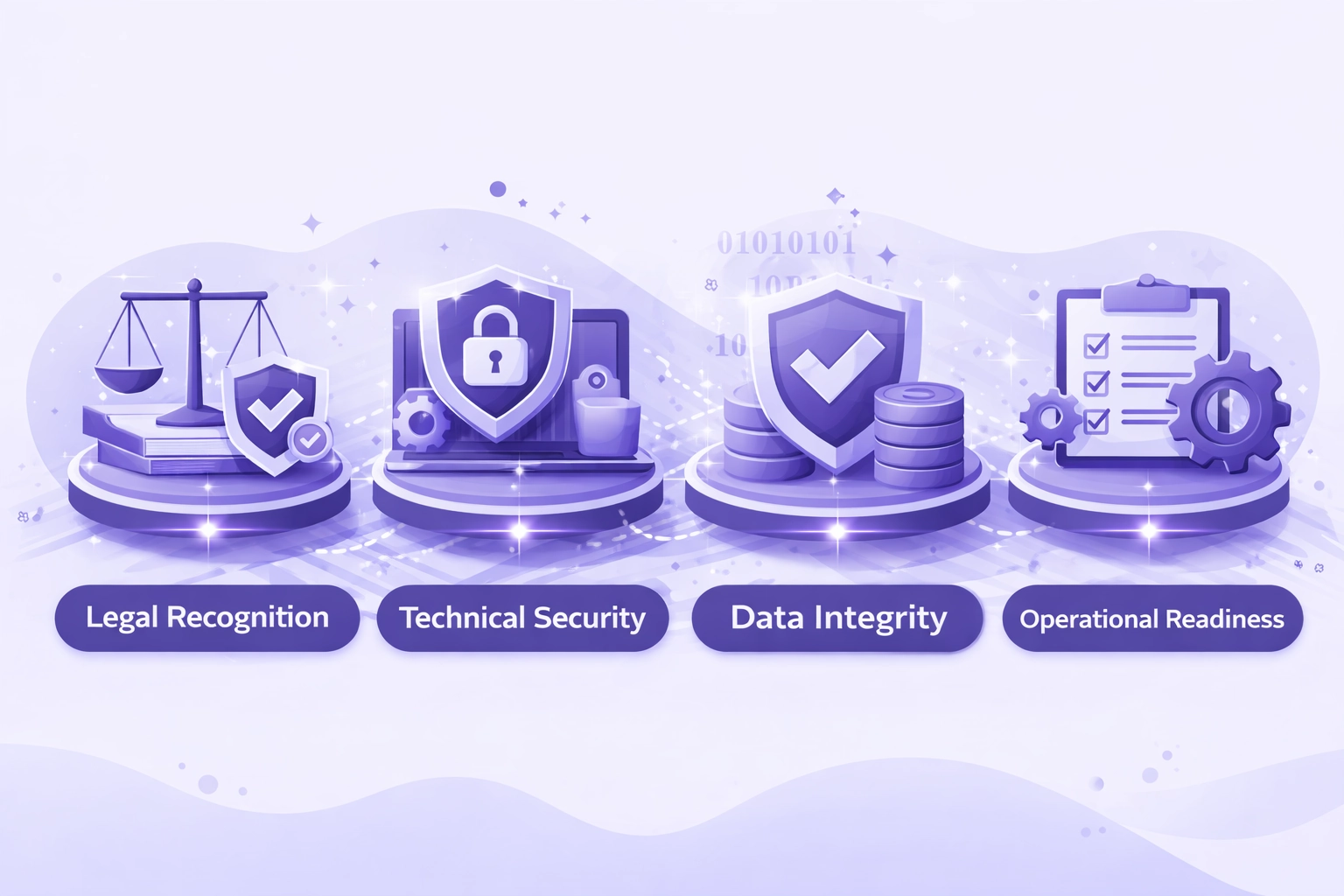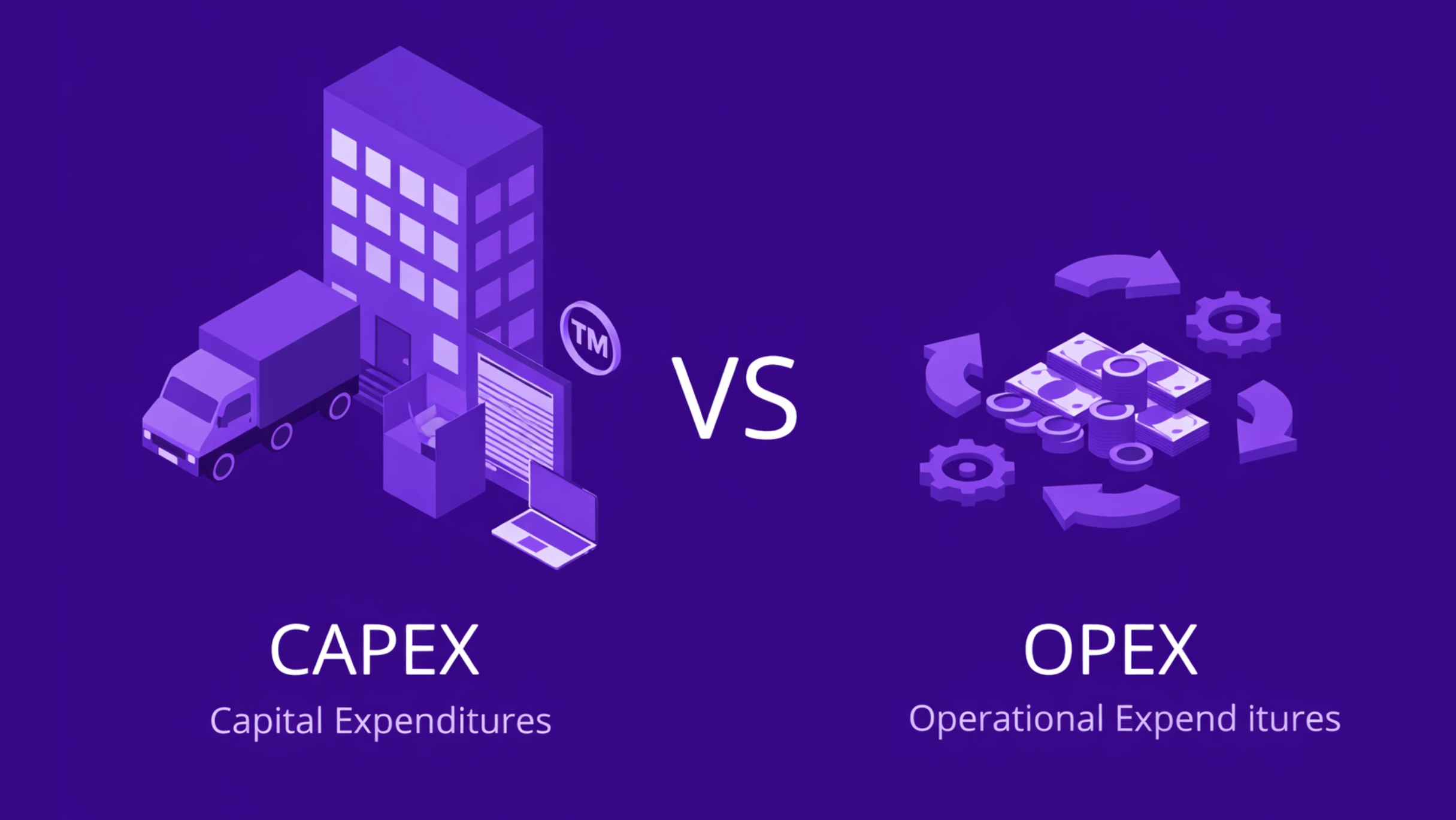Key Takeaways
- Blockchain land registry systems create immutable ownership records that serve as the trust foundation for tokenized real estate investments globally.
- Property tokenization platforms require verified Land Registry titles to issue compliant digital securities representing fractional ownership stakes in real assets.
- Settlement times for tokenized property transactions reduce from weeks to minutes when backed by blockchain-verified land registry data.
- Dubai, UK, Georgia, and several US states lead blockchain land registry adoption, creating favorable environments for tokenized property markets.
- Institutional investors increasingly require on-chain title verification before allocating capital to tokenized real estate investment opportunities.
- Smart contracts enable automated property transfers when connected to blockchain land registries, eliminating manual processing delays and errors.
- Cross-border real estate tokenization becomes practical when multiple jurisdictions adopt interoperable blockchain-based land registration standards.
- Title disputes decrease substantially in tokenized markets where blockchain registries provide transparent, auditable ownership history records.
- Regulatory bodies increasingly accept tokenized securities when underlying property assets have blockchain-registered titles with government recognition.
- Market projections indicate blockchain land registries will underpin over $5 trillion in tokenized real estate assets by 2030 globally.
Blockchain Land Registry as the Foundation of Real Estate Tokenization
The emergence of blockchain-based land registry systems represents a fundamental shift in how property ownership gets recorded, verified, and transferred across global markets. Traditional paper-based registries, while functional for centuries, create friction that prevents real estate tokenization from reaching its full potential. These legacy systems require manual verification, involve multiple intermediaries, and often contain inconsistent or outdated records that complicate digital asset issuance.
Blockchain land registries solve these challenges by creating single sources of truth for property ownership that any authorized party can verify instantly. When Land Registry titles exist on distributed ledgers, tokenization platforms can programmatically confirm ownership before issuing digital securities. This automation reduces costs, eliminates human error, and creates seamless connections between physical assets and their tokenized representations.
Our agency has spent over eight years guiding clients through blockchain infrastructure projects across USA, UK, UAE, and Canada. We have witnessed firsthand how government adoption of on-chain land registries accelerates tokenized real estate market maturation. Jurisdictions with modernized registry systems attract significantly more tokenization activity than those relying on legacy infrastructure.
How Blockchain Land Registry Records Enable Trust in Tokenized Assets
Trust in tokenized real estate ultimately derives from confidence in underlying property rights. Blockchain Land Registry records create this trust through cryptographic verification, immutable audit trails, and decentralized consensus mechanisms. When investors can independently verify that token issuers legitimately own properties being tokenized, they commit capital more readily and at better terms for all parties involved.
The transparency of blockchain registries eliminates information asymmetries that historically favored insiders. Every ownership transfer, encumbrance, and modification becomes visible to authorized parties. This radical transparency discourages fraudulent activity and builds systemic trust that benefits the entire tokenized real estate ecosystem.
Our experience across multiple jurisdictions confirms that tokenization projects connected to blockchain land registries consistently outperform those relying on traditional title verification. Investor subscription rates are higher, secondary market liquidity is deeper, and overall transaction costs remain lower throughout asset lifecycles.
Ownership Finality and Settlement Speed in Tokenized Real Estate
Settlement speed represents one of the most significant advantages blockchain land registries bring to tokenized real estate markets. Traditional property transactions require extensive verification periods, escrow arrangements, and manual processing that can extend settlement to 30-60 days or longer. Blockchain-registered properties can settle ownership transfers in minutes when integrated with tokenization platforms.
| Settlement Type | Traditional Registry | Blockchain Registry |
|---|---|---|
| Ownership Transfer | 30-60 days | Minutes to hours |
| Title Verification | 5-14 days | Instant |
| Encumbrance Check | 3-7 days | Instant |
| Secondary Market Trade | Not applicable | T+0 settlement |
| Cross-Border Transfer | 60-90 days | Same as domestic |
 Linking Land Registry Data with Property Token Issuance
Linking Land Registry Data with Property Token Issuance
Successful tokenization requires seamless integration between land registry systems and token issuance platforms.
Data Verification Layer
- Ownership confirmation APIs
- Encumbrance status checks
- Property boundary validation
- Historical transfer records
Token Mapping Logic
- Property-to-token linkage
- Fractional ownership ratios
- Rights representation
- Metadata synchronization
Compliance Bridge
- Regulatory requirement mapping
- Investor eligibility checks
- Transaction reporting feeds
- Audit trail maintenance
Fractional Property Tokens Backed by On-Chain Land Registry Titles
Fractional ownership represents the most transformative application of blockchain-based land registries in tokenized markets. When property titles exist on-chain, platforms can issue thousands of tokens representing proportional ownership stakes with complete certainty about underlying asset legitimacy. This capability opens real estate investment to participants who could never access whole property acquisitions.
The technical architecture requires careful coordination between registry records and token smart contracts. Each token must accurately represent its proportional claim on property rights, rental income distributions, and eventual sale proceeds. Blockchain land registries provide the authoritative data source that token contracts reference for ownership verification and rights enforcement.[1]
Projects in Dubai have demonstrated particularly successful fractional tokenization backed by the emirate’s advanced blockchain land registry infrastructure. Investors from USA, UK, Canada, and globally can acquire fractional stakes in premium properties with complete confidence in their ownership rights.
Investor Confidence Gains from Blockchain-Verified Property Records
Investor confidence directly correlates with verification certainty. Traditional real estate investments require trust in multiple intermediaries including title companies, attorneys, and government clerks. Each intermediary introduces potential failure points and costs. Blockchain-verified property records eliminate these trust dependencies by providing cryptographically secured, independently verifiable ownership evidence.
Survey data from institutional investors consistently shows preference for tokenized assets backed by blockchain land registries. Pension funds, family offices, and sovereign wealth funds increasingly mandate on-chain title verification before approving allocations. This institutional requirement drives adoption of blockchain registries as jurisdictions compete for investment capital.
The confidence premium manifests in better pricing for tokenized offerings. Properties with blockchain-registered titles typically achieve 5-15% better valuations than comparable assets with traditional title evidence. This premium reflects reduced risk perception and lower due diligence costs for sophisticated investors.
Eliminating Title Disputes in Tokenized Real Estate Markets
Title disputes represent significant risks in traditional real estate transactions, often emerging years after purchases and resulting in costly litigation. Blockchain land registries dramatically reduce these disputes through immutable record-keeping and transparent ownership histories. When every transfer gets recorded on-chain with timestamps and party verification, fraudulent claims become easily identifiable and disputes become rare.
| Dispute Type | Traditional Frequency | Blockchain Registry |
|---|---|---|
| Boundary Disputes | 8-12% of transactions | Less than 1% |
| Fraudulent Transfers | 3-5% annually | Near zero |
| Undisclosed Liens | 6-10% discovered post-sale | Fully transparent |
| Inheritance Claims | Common in probate | Clear chain of title |
Smart Contract-Driven Transfers of Registered Land Registry Assets
1. Transfer Initiation
Buyer initiates purchase through tokenization platform, triggering smart contract execution sequence.
2. Registry Verification
Smart contract queries blockchain land registry to confirm current ownership and encumbrance status.
3. Compliance Check
Automated verification of buyer eligibility, regulatory requirements, and transaction limits.
4. Payment Escrow
Funds locked in smart contract escrow pending successful completion of all verification steps.
5. Token Transfer
Property tokens transferred to buyer wallet upon successful payment and compliance verification.
6. Registry Update
Blockchain land registry automatically updated to reflect new fractional ownership allocation.
7. Payment Release
Escrowed funds released to seller following successful token transfer and registry confirmation.
8. Transaction Finality
Complete audit trail recorded on blockchain, providing permanent, immutable transaction evidence.
Price Discovery Improvements Using Transparent Land Registries
Traditional real estate suffers from opaque pricing due to infrequent transactions, private negotiations, and limited comparable data. Blockchain land registries combined with tokenization create continuous price discovery through secondary market trading. Every token trade provides real-time valuation data that market participants can use for investment decisions.
Transparent registry data also enables more accurate property valuations by providing complete transaction histories, current encumbrances, and ownership structures. Appraisers and algorithms can access this data programmatically, improving valuation accuracy and reducing information asymmetries that historically favored insiders.
The combination of frequent trading and comprehensive registry data creates pricing efficiency approaching that of public equity markets. This efficiency benefits all market participants by reducing bid-ask spreads and ensuring fair value transactions.
Institutional Adoption of Tokenized Property via Blockchain Records
Institutional investors evaluate tokenized real estate opportunities through systematic criteria before committing capital.
Registry Verification
Confirm blockchain land registry has government recognition and legal enforceability in relevant jurisdiction.
Token Structure Review
Analyze legal connection between tokens and underlying property rights including income and voting claims.
Platform Due Diligence
Evaluate tokenization platform security, regulatory compliance, and integration quality with land registries.
Liquidity Assessment
Measure secondary market trading volumes and exit pathway reliability for portfolio rebalancing needs.
Custody Solutions
Verify institutional-grade custody options meeting fiduciary requirements and insurance coverage standards.
Reporting Integration
Ensure tokenized positions integrate with existing portfolio management and regulatory reporting systems.
Cross-Border Real Estate Tokenization Enabled by On-Chain Titles
International real estate investment has traditionally required navigating complex legal systems, currency controls, and ownership restrictions. Blockchain land registries simplify cross-border transactions by providing universally verifiable ownership evidence that transcends jurisdictional boundaries. Investors in Toronto can verify Dubai property ownership with the same confidence as local buyers.
Tokenization platforms leverage this verification capability to offer global property portfolios to investors regardless of location. A UK pension fund can hold fractional stakes in US commercial buildings, UAE residential towers, and Canadian industrial facilities within a single custody arrangement. This diversification was previously accessible only to the largest institutional investors.
Interoperability standards between national blockchain registries continue evolving, promising even greater cross-border efficiency. Early collaboration between Dubai Land Registry Department and international blockchain consortiums demonstrates the potential for seamless global property markets.
Regulatory Acceptance of Tokenized Assets Tied to Land Registries
Regulatory bodies increasingly recognize tokenized real estate as legitimate securities when backed by blockchain-verified Land Registry titles. This acceptance varies by jurisdiction but trends consistently toward greater clarity and enabling frameworks. Jurisdictions with advanced blockchain registry implementations typically lead in regulatory accommodation for tokenized property markets.
| Jurisdiction | Registry Status | Tokenization Framework | Investor Protection |
|---|---|---|---|
| UAE (Dubai) | Fully operational | VARA regulated | Comprehensive |
| United Kingdom | Advanced pilot | FCA sandbox | Strong |
| United States | State-level pilots | SEC Reg D/A+ | Established |
| Canada | Provincial trials | CSA guidelines | Developing |
Data Standardization Between Land Registries and Token Platforms
Effective integration between blockchain land registries and tokenization platforms requires standardized data formats and communication protocols. Without standardization, each platform must build custom integrations for every registry, creating inefficiency and potential inconsistency. Industry consortiums are actively working to establish common schemas for property data exchange.
Key standardization areas include property identification numbers, ownership record formats, encumbrance representations, and transfer notification protocols. Emerging standards draw from existing real estate data models while incorporating blockchain-specific requirements for cryptographic verification and smart contract compatibility.
Our agency participates in several working groups developing these standards, bringing practical implementation experience to theoretical discussions. Progress accelerates as more jurisdictions adopt blockchain registries and the benefits of interoperability become tangible.
Scalability Challenges for National Blockchain Land Registry Systems
National-scale blockchain land registries must handle millions of properties and potentially billions of annual transactions. Public blockchain networks face throughput limitations that may prove inadequate for high-volume jurisdictions. Layer 2 solutions and private blockchain implementations offer higher performance but introduce centralization tradeoffs.
Storage requirements for comprehensive property records including surveys, documents, and historical data present additional scalability challenges. Hybrid architectures storing document hashes on-chain while maintaining full records in distributed storage systems provide practical solutions for most implementations.
Geographic distribution requirements for national systems complicate network architecture. Ensuring adequate node presence across regions while maintaining consensus efficiency requires careful infrastructure planning that balances decentralization benefits against operational requirements.
Economic Impact of Land Registry Tokenization on Real Estate Markets
Industry analysis reveals transformative economic effects when blockchain land registries enable real estate tokenization.
Impact 1: Transaction costs decrease 60-80% when blockchain registries eliminate title insurance and extensive legal review requirements.
Impact 2: Property liquidity increases 300-500% through secondary market trading of blockchain-registered tokenized assets.
Impact 3: Foreign investment accessibility improves dramatically, expanding buyer pools for premium properties globally.
Impact 4: Fraud losses decline 90% or more where comprehensive blockchain registries replace paper-based systems.
Impact 5: Property tax collection efficiency improves with accurate, current ownership records available to authorities.
Impact 6: Mortgage origination timelines compress from weeks to days with instant title verification capability.
Impact 7: Small investor participation grows exponentially with fractional ownership enabled by verified tokenization.
Impact 8: Market price transparency increases valuation accuracy and reduces information-based arbitrage opportunities.
 Blockchain Land Registry Compliance Checklist
Blockchain Land Registry Compliance Checklist
Legal Recognition
- Government acceptance confirmed
- Statutory backing established
- Court enforceability verified
Technical Security
- Smart contract audited
- Key management secured
- Disaster recovery tested
Data Integrity
- Migration verified accurate
- Validation procedures active
- Audit trails maintained
Operational Readiness
- Staff training completed
- Support procedures documented
- Escalation paths defined
Launch Your Tokenized Real Estate Platform with Blockchain Land Registry Integration!
Partner with our expert team to build compliant tokenization solutions connected to blockchain registries across USA, UK, UAE, and Canada markets.
Frequently Asked Questions
A blockchain-based land registry is a digital system that records property ownership and Land Registry titles on distributed ledger technology. Instead of maintaining paper documents in government offices, these systems store immutable ownership records across decentralized networks. This approach eliminates single points of failure, reduces fraud risk, and enables instant verification of property titles by any authorized party globally.
Blockchain land registries provide the foundational trust layer that real estate tokenization requires. When property titles exist on-chain, tokenization platforms can directly verify ownership before issuing digital securities. This eliminates lengthy title searches, reduces legal costs, and creates seamless connections between physical assets and their digital representations, enabling faster token issuance and settlement.
Several nations are pioneering blockchain land registry adoption. The UAE leads with Dubai Land Registry Department initiatives, while the UK explores HM Land Registry modernization. Georgia implemented one of the first national systems, and Sweden conducted successful pilots. The USA sees state-level experiments in Vermont and Wyoming, while Canada explores provincial implementations for enhanced property record management.
On-chain land titles offer investors unprecedented transparency and security. They can instantly verify ownership history, encumbrances, and property boundaries without relying on intermediaries. Settlement times reduce from weeks to minutes, transaction costs decrease significantly, and the immutable audit trail prevents fraudulent title transfers. These benefits particularly attract institutional investors seeking reliable property exposure.
Blockchain land registries employ cryptographic security and distributed consensus mechanisms that make tampering virtually impossible. Once recorded, title information cannot be altered without network-wide detection. Multiple nodes maintain identical copies, preventing single-point manipulation. However, the initial data entry remains a potential vulnerability, requiring robust verification procedures before on-chain recording to ensure accuracy.
Reviewed & Edited By

Aman Vaths
Founder of Nadcab Labs
Aman Vaths is the Founder & CTO of Nadcab Labs, a global digital engineering company delivering enterprise-grade solutions across AI, Web3, Blockchain, Big Data, Cloud, Cybersecurity, and Modern Application Development. With deep technical leadership and product innovation experience, Aman has positioned Nadcab Labs as one of the most advanced engineering companies driving the next era of intelligent, secure, and scalable software systems. Under his leadership, Nadcab Labs has built 2,000+ global projects across sectors including fintech, banking, healthcare, real estate, logistics, gaming, manufacturing, and next-generation DePIN networks. Aman’s strength lies in architecting high-performance systems, end-to-end platform engineering, and designing enterprise solutions that operate at global scale.







